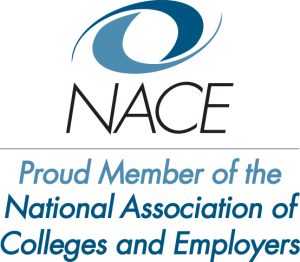Strategies for College Recruiting in Rural Communities Using PathwayU
As colleges and universities grapple with the ripple effects of declining numbers of high school graduates, increased doubt about the financial value of a college degree, and general uncertainty about the state of the economy, many are looking for under-developed markets for recruiting and enrolling new students.
One such market is the rural community. Compared to their urban/suburban counterparts, graduating high schoolers or retooling adults in these communities are more likely to consider community college or credentialing and less likely to consider pursuing an advanced degree.
Here, we consider both common characteristics of rural students and how this knowledge can inform recruiting strategies for colleges and universities with the help of PathwayU.
In their recent blog, @Pathway_U outlines common characteristics of rural students and how this knowledge can inform #Recruiting strategies for colleges and universities with the help of PathwayU. Find out more:Click to TweetWho Are Rural Students? How Do We Recruit Them?
The American humorist Robert Benchley once observed: “There are two kinds of people in the world, those who believe there are two kinds of people in the world and those who don’t.”
It's always dangerous to make broad generalizations about groups of people like rural v. urban v. suburban residents. There is tremendous variability across rural communities; the typical values, financial means, and career aspirations of residents of small towns in the Mississippi Delta, the Midwest plains, and the Colorado mountains likely differ.
There is also variability within these communities. The son of a farmer and the daughter of the town physician may have very different career goals (and not necessarily in the direction you may have just imagined).
That said, research shows there are some common characteristics of rural residents that can inform a recruiting strategy. We shouldn't assume these characteristics are true, but we can plan for them.
Inform About Career Options
Compared to the typical college applicant, rural residents may have a narrower view of potential career options and the paths to get there. This is simple math. High schoolers in less densely-populated suburban areas are less likely to be exposed through their neighbors and parents or friends to doctors, lawyers, architects, logistics managers, air traffic controllers, etc. They are less likely to have access to a trained high school career counselor. This lack of awareness in rural students could lead to the perception that a college degree is not needed "to work."
We see a similar phenomenon in students growing up in lower socioeconomic status (SES) households. While we do not have direct research on the impact of career development interventions on rural residents, research by PathwayU developers shows that the use of our career development platform has a significantly greater positive impact on lower SES students. This is because the platform not only shows these students that they are a match for careers they may not have considered, but the platform provides detailed career information, including salary data, educational requirements, and a peek at a day-in-the-life-of."
Ease Financial Concerns
Another key characteristic of rural students is that they tend to be highly concerned about the affordability of college and the value of the financial value of a college education. As first-generation students or without generational access to counselors, they may be less informed about the availability of scholarships and financial aid. They may not understand that the ticket price of college is not always the price you pay.
Concerns about the return on investment of four years in college are shared across all types of communities and will continue to grow as tuition rises. While this is a complex problem that requires a broad strategy to address, it is clear that one thing colleges and universities should not be doing is promoting the value of a general college degree. Universities are not technical training schools, but there is nothing wrong with messaging that asserts that we are transforming students and setting them up for career success.
By helping rural students understand career options and make better career choices using a platform like PathwayU, your school can open up new markets for recruiting. Learn more in the recent blog from @Pathway_U:Click to TweetPathwayU is a powerful tool for walking that talk. Students in PathwayU schools can use our platform by themselves, in orientation or classrooms, or during appointments with a career guidance professional. Assessment results, career modeling information provided through the platform, and evidenced-based tools like our Discern Your Calling Workbook combine to prepare and guide students through important career decisions.
By understanding suitable career options and making and crafting an educational-to-career pathway, PathwayU students will persist longer and do better in coursework, stay on track to graduate and learn how to effectively market themselves to future employers.
Build Your Brand
Finally, rural students may be less likely to have brand awareness or simply identify with higher education institutions. Colleges and universities may feel far from home. The idea of 50,000 people filling a college football stadium may be intimidating to a resident of a town of 4,000. Images of idyllic college quads or professors in tweed jackets may feel equally foreign.
Recruiting experts recommend overcoming this sense of isolation both by building brand awareness (e.g., highway billboards) and personalizing recruiting. Current college students or recent alumni can visit college information sessions or give presentations in college prep classes. PathwayU can help here as well. Increasingly, Pathway schools are using the platform not only as a student retention tool but for recruiting purposes as well.
Imagine using PathwayU as a giveaway for a high school recruiting trip. Giving something away to build a relationship is what social psychologists call the reciprocity principle. Now that you've scratched my back, I want to do something nice of you. Letting rural students create PathwayU accounts through your school not only creates a direct connection but can lead to two critical insights. One is giving them insights into career paths not previously considered. Two is showing them the path to that career goes through your school. Notably, it's the same school to which the student wants to reciprocate.
In sum, by helping rural students understand career options and make better career choices using a platform like PathwayU, your school can open up new markets for recruiting.
Dr. Kurt Kraiger is a Professor and Chair of the Management Department at the University of Memphis. He is also a co-founder and Principal Psychologist at jobZology.
Find out more about what PathwayU can do to help you transform your student’s academic year ahead by scheduling a demo today.
-1.png?width=288&height=67&name=PathwayU_PGLogo%20(1)-1.png)










